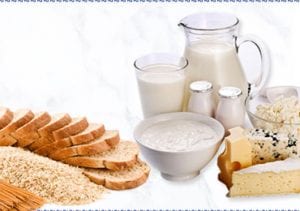There are instances where we are going through a healthy process of losing weight in terms of diet and activity but still not able to achieve the goal. Certain factors that still hinder in achieving an ideal body weight are reaching a weight loss plateau, stress, less sleep, drinking less water etc. Are you thinking why am I not losing weight?
Modifying our certain lifestyle habits will help to remove the hurdle of not losing weight. If these modifications still don’t work, then you can always consult a dietitian or nutritionist.
You are on a healthy diet regime, you are working out well, you are counting on the calories, but still when you step onto the scale, you have lost a pound. Now that’s quite depressing and of course frustrating. What could be the reason of not losing weight? Why am I not losing weight? Our answers lie within the random activities that we do every day. There could be few habits which may be trivial but make a huge difference if we try to modify these habits towards the positive way.
Have a look at the answers for “why am I not losing weight“.
Why am I Not Losing Weight?
1. You Must Have Hit The Weight Loss Plateau
You were working hard on your weight loss, you were improving your diet and exercise habits and it was seen in your weighing scale that you were losing weight and feeling better. You were going great guns. But after few sunny days, you see that despite having a healthy low-calorie diet and great physical activity, your weight has not budged a little. Do not feel depressed or sad, it’s normal, you have just hit a weight loss plateau.
What Is This Weight Loss Plateau?
During the initial weeks of losing weight, there is normally a steady drop in the weight. This is because when we cut the calories, our body relies on the glycogen stores present in the liver and the muscles for energy. Glycogen consists partly of water, hence when glycogen is utilized for energy; it releases water, which results in weight loss that is mostly water. However, this loss is temporary.
Now as you lose weight, you are losing not only fat but also muscles. Muscles help to keep up the rate at the calories are burned (metabolism). When you lose weight, your metabolism declines and hence fewer calories are burned than you did before.
Hence if you need to lose weight, you need to reduce the calories you eat and also increase the physical activity further.
Here are few tips to get past the plateau stage, if you are still inclined to lose weight.
a. Reassess Your Habits Thoroughly
Just read through your food and activity diary to check whether you have loosened up any of the rules like having more calories or lesser exercise.
b. Cut Your Calories More
Further cut down 200 calories more, but see to it that your daily calorie allowance doesn’t go below 1200 calories.
c. Increase Your Workout Timing As Well As Intensity
Just rev up your activity timing by 15 to 30 minutes more. Include weight lifting to improve your muscle mass in order to burn more calories.
d. Increase Your General Activity
Throughout the day, improve upon the general physical activity like walking more, being in action and using less of the car.
If none of the above tips work past your plateau, talk to your doctor or dietician for more tactics. But please don’t get dejected and revert back to your old eating and exercise plan as you may regain weight that you have lost.
2. Are You Keeping A Track Of What You Eat?
Ignorance is not always bliss. Awareness about what you eat, how much are you eating and why are you eating can help you cut down on mindless munching. Food diaries help us to identify the areas where we need to make changes that can bring a big difference and also our eating habits and patterns like not eating throughout the day and then over eating in the night, relying on caloric beverages and snacks and having more of alcohol.
There are several methods of keeping a track or you can create your own format like having sticky notes. The basic elements recommended are time, food is eaten, amount or portion and degree of hunger. Add ons like emotions while eating or location of eating can also be included.
Updating the details of eating is essential like you can fill out the food diary at least 5 days a week but most recommended is filling out the diary every day or right after you eat. Try to be realistic while noting down let it be a healthy snack or a high caloric dessert, everything needs to be written down correctly and accurately. Review the food diary regularly either by yourself or with the help of the dietician who can help to point out what patterns is keeping you from losing weight and what changes need to be brought about.
3. Are You Eating Too Many So Called “Healthy” But Processed Foods?
The market is being flooded with a vast array of processed foods that claim the goodness of ”organic”, “bran rich”, “sugar-free”,”multi grain” etc. but none of them shows that the product is whole grain. We have a perception that whole grain products don’t taste good and it is not easy to add into our daily diets.
Try blending whole grain products into the baked products. Substitute half of refined flour with whole wheat flour or oats to improve the whole grain content of the baked goods. Try a combination of brown rice or whole grain pasta or blended pasta with a mix of refined and whole grains along with veggies. Add oats into yogurt for marinade preparation for meat. Try risottos, wraps or salads with the addition of sorghum or quinoa. Prepare your kids to have whole grains at an early stage like using whole grain buns for burgers or whole wheat pitas for pizzas.
4. Are You Sleeping Well?
Between the living our life, eating and exercise, we tend to forget to sleep well. Studies have shown that more than 35% of people are sleep deprived. Being less on sleep can affect your weight, your body is preparing for weight gain. Insufficient sleep affects the hunger and fullness hormones called ghrelin and leptin.
When we are sleep deprived, the brain releases more ghrelin hormone that signals the brain to eat. Leptin hormone tends to signal the brain to stop eating. On sleep deprivation, the leptin levels plummet thus signaling your brain to eat more. Sleep deprivation also leads to cortisol spike, a stress hormone that signals the brain to conserve more energy in order to fuel the waking hours.
Shut down your computer, cellphones or TV one hour before you hit the bed. Create a bed room ritual of taking a warm bath, reading and meditation. Stick to your schedule like waking up and sleeping at the same time, even on the weekends. Avoid heavy foods, alcohol or caffeine close to the bedtime. Turn off the light and make it pitch dark as it releases sleep hormone melatonin. A fixed 7 to 8 hours of sleep is essential.
5. Are You Drinking Enough Water?
Water is an underrated nutrient when it comes to weight loss. A person can go without food for weeks but only few days without water. When we do not get enough water, we become dehydrated. When our body is dehydrated, our body can’t flush out the toxins and regulate itself thus leading to sickness, weight gain and premature aging.
Drinking water improves the metabolic rate and enhances the fat burning rate. Drinking water before a meal help you feel satisfied and make you eat less. If you have the habit of snacking very often, drinking water instead of snacking tends to fill you up and ward off the snack craving. If you don’t drink a lot of water, then start slow. Start with finishing half jug of water first and then you can add additional 10 to 12 ounces every couple of days till you will be able to drink a full gallon of water. Hence if you want to be healthier, drinking water is the easiest that you can do.
6. Are You Feeling Stressed?
You going well with diet regime and exercise but sometimes stress can be the underlying cause for weight loss struggles. Challenging job, family pressure, hectic schedule, and the list is endless. Stress releases higher amounts of cortisol that can lead to greater amounts of visceral fat.
If there are the number of reasons that can lead to stress, there are also a number of ways to deal with stress. Go for a walk, prepare a meal, read funniest messages or emails, talk to yourself and try pep talks like “All is well” or “I can cope up”. Avoid coffee, colas or drinking tea beyond 2 cups daily. Talking to your closed one or someone who cares for you can reduce your stress levels. In spite of this, if stress and anxiety has been the part of your life, then seek help from the counselor. Seeking help doesn’t mean that you are weak.
7. You May Be Having Some Medical Condition Which Makes It Harder To Lose Weight
Certain medical conditions like hypothyroidism, polycystic ovarian syndrome or sleep apnea can make the weight loss process harder. Sometimes the medications that we are taking can cause weight gain. If such a case, then you need to speak to your doctor regarding the weight loss options.
Thus we see that despite of efforts taken to try to achieve an ideal body weight, we may sometimes feel dejected that it’s not working according to the plan & we think why am I not losing weight. But sometimes there are chances that our expectation may be high and we are heavily focused on dieting. Make a point to consider that healthy diet is essential to nourish your body and not deprive it and weight loss will follow in its own stride. Even a minute weight loss is a celebration and an encouragement towards the healthy lifestyle.


















